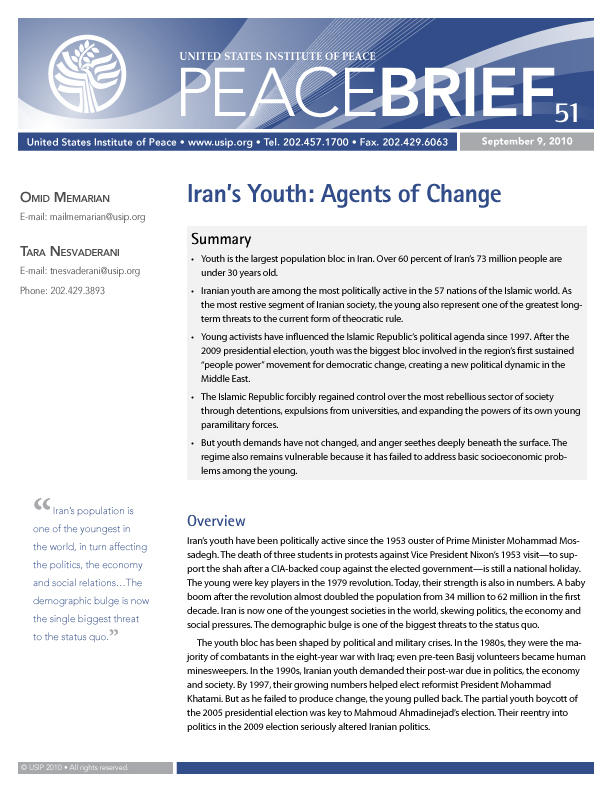Iran’s Youth: Agents of Change
The impact of Iran’s youth on the political, economic and social agenda of the country over the next 25 years is important for U.S. policymakers to consider when facing complex decisions in balancing Iran’s nuclear program and its internal political turmoil.

Summary
- Youth is the largest population bloc in Iran. Over 60 percent of Iran’s 73 million people are under 30 years old.
- Iranian youth are among the most politically active in the 57 nations of the Islamic world. As the most restive segment of Iranian society, the young also represent one of the greatest longterm threats to the current form of theocratic rule.
- Young activists have influenced the Islamic Republic’s political agenda since 1997. After the 2009 presidential election, youth was the biggest bloc involved in the region’s first sustained“people power” movement for democratic change, creating a new political dynamic in the Middle East.
- The Islamic Republic forcibly regained control over the most rebellious sector of society through detentions, expulsions from universities, and expanding the powers of its own young paramilitary forces.
- But youth demands have not changed, and anger seethes deeply beneath the surface. The regime also remains vulnerable because it has failed to address basic socioeconomic problems among the young.
About This Brief
This Peace Brief highlights how Iran’s youth are one of the two main agents of change, along with women, now challenging the rigid Islamic rule. Since January 2010, the regime regained control over the opposition’s protests in all public arenas—except for university campuses. This brief is co-sponsored by USIP’s Jennings Randolph Fellowship Program and the Youth and Peacebuilding Working Group in USIP’s Centers of Innovation.
Co-author Omid Memarian is an Iranian-born journalist and blogger who specializes in youth and human rights issues, and Tara Nesvaderani is a research assistant at the U.S. Institute of Peace.



